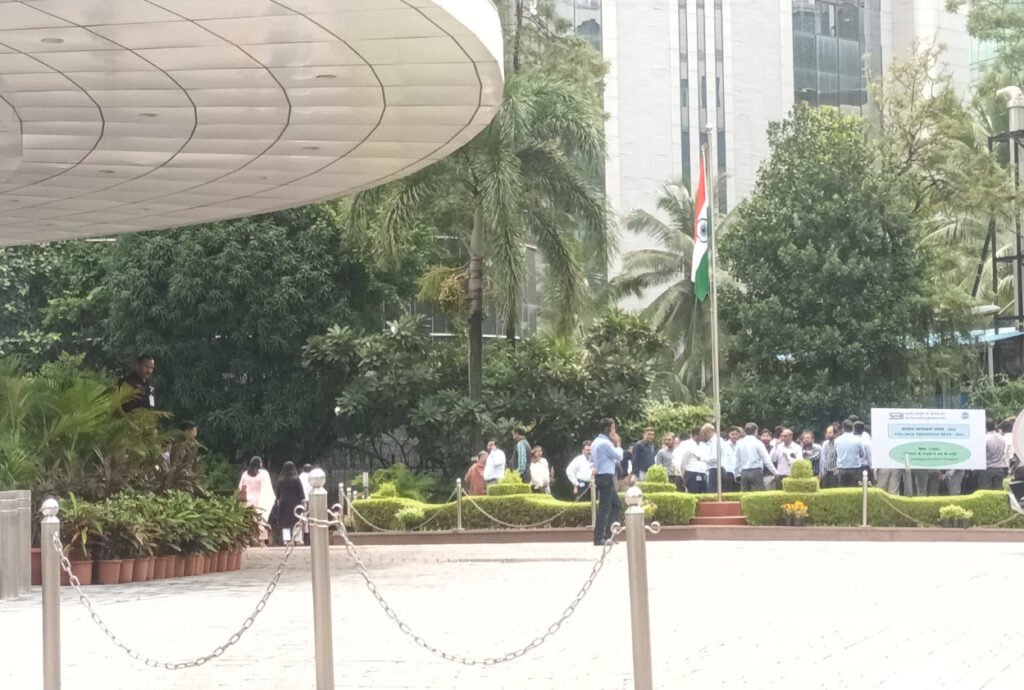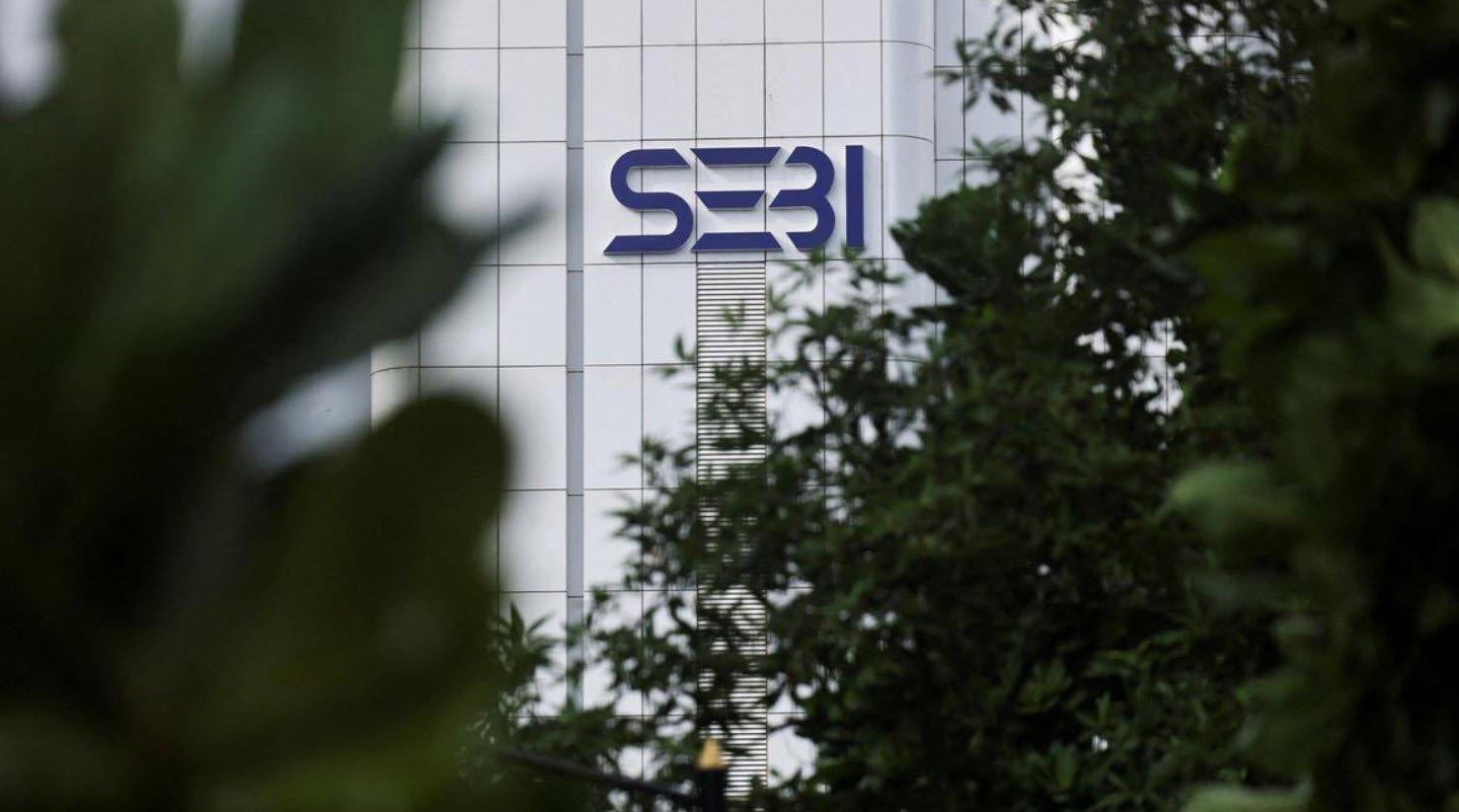
On Thursday, September 5, a group of disgruntled employees from the Securities and Exchange Board of India (SEBI) staged a protest outside the regulator’s headquarters in Mumbai. The protest was aimed at expressing dissatisfaction with SEBI Chairperson Madhabi Puri Buch, with employees demanding her resignation.
This rare public display of discontent within SEBI followed a controversial statement issued by the market watchdog on Wednesday, which further inflamed tensions among its employees.
The protest stemmed from SEBI’s statement on Wednesday, which denied allegations of a toxic and unprofessional work culture within its offices. The regulator dismissed claims of public humiliation, high-pressure work environments, and abusive management practices as “misplaced” and blamed “external forces” for misleading its staff.
🚨 Around 400 SEBI employees are protesting at SEBI HQ in Mumbai, calling for Madhabi Puri Buch's resignation.
SEBI clarified yesterday that staff concerns over HRA issues were influenced by external forces trying to undermine the credibility of SEBI and its leadership. pic.twitter.com/vhk69MGplu
— BigBreakingWire (@BigBreakingWire) September 5, 2024
This statement was met with outrage by SEBI employees, many of whom felt the regulator was trivializing their concerns. In response, they staged a silent protest, drawing significant media attention to the matter.
The tension between SEBI’s leadership and its staff has been building for some time. Last month, SEBI employees sent a letter to the finance ministry, detailing what they described as “immense work pressure” and a “stressful and toxic work environment.”
According to reports, the letter outlined instances of senior officials allegedly shouting, scolding, and publicly humiliating employees during meetings. This created an atmosphere of fear and anxiety within the organization, according to the letter’s authors.
The letter and subsequent protest indicate a growing divide between SEBI’s management and its workforce, raising questions about the leadership style of Madhabi Puri Buch, who took over as SEBI’s chairperson in 2017.
Employees protest against SEBI and Chief Madhabi Puri Buch. India Today's Dev Kotak bring in his ground report.
Watch: https://t.co/bIiGbMNY4l | #SebiProtest #EmployeeRights #WorkplaceConditions #SebiIndia #CorporateProtest #MadhabiPuriBuch@pencilpatrakar pic.twitter.com/WpKasXILF0
— Business Today (@business_today) September 5, 2024
The unrest within SEBI coincides with mounting allegations against its chairperson. Earlier this week, the opposition Congress party raised questions about her compensation from her previous employer, ICICI Bank. Congress alleged that Madhabi Puri held an office of profit at the private lender and received ₹16.8 crore in substantial benefits from ICICI Bank and its subsidiaries before her appointment as SEBI chairperson.
Congress leader Pawan Khera called for Madhabi Puri Buch to “come out clean” and address these allegations. The controversy surrounding her ties to ICICI Bank has further added to the pressure on Buch, with critics questioning her independence and integrity as the head of the capital markets regulator.
The shocking revelations of the #HindenburgReport do not just expose the cosy relationship between SEBI chief and the Adani group, they show how appointments to watchdog institutions are made in this govt.
A simple due diligence done by the govt before appointing Ms Madhabi… https://t.co/jFVPPdsMFZ
— Pawan Khera 🇮🇳 (@Pawankhera) August 11, 2024
Adding to her challenges are allegations made by US-based short-seller Hindenburg Research. Last month, Hindenburg accused Madhabi Puri Buch and her husband, Dhaval Buch, of holding stakes in offshore funds allegedly used to inflate the stock prices of the Adani Group.
SEBI has been investigating the Adani Group for stock price manipulation, making these accusations particularly sensitive. Both Buch and her husband have strongly denied these claims, labeling them “baseless” and accusing Hindenburg of engaging in a “character assassination” campaign.
The protest by SEBI employees, coupled with the multiple allegations swirling around Buch, paints a picture of growing instability within the capital markets regulator. SEBI, responsible for overseeing India’s financial markets, is a critical institution, and its internal conflicts could have wider implications for market regulation and investor confidence.
The situation places SEBI’s leadership under intense scrutiny, as the calls for her resignation grow louder. Whether Madhabi Buch will address the allegations and employee concerns more directly remains to be seen, but the protests signal a deep dissatisfaction that may not be easily quelled.
As SEBI employees continue to demand changes in leadership, the focus will remain on how Madhabi Puri Buch and the regulator respond to these escalating challenges.
You may also like:- SEBI Makes 45 New Additions in the F&O Including Zomato, IRFC and Yes Bank
- Top 7 Essential Secrets of Successful Trading
- BigB, Rahul Dravid, Karan Johar, and Other Celebrities Snap Up Swiggy’s Pre-IPO Shares
- 30 Rules to Master Swing Trading
- Important Terms Related to Stock Market Trading
- US Federal Reserve Cuts Rates by 50 Basis Points
- How Market Operators Control Stock Prices
- 5 Common Misuses of the Price-to-Earnings (P/E) Ratio
- Understanding Stop Loss Orders in Stock Trading
- Top 20 Stock Market Terminologies You Must Know








